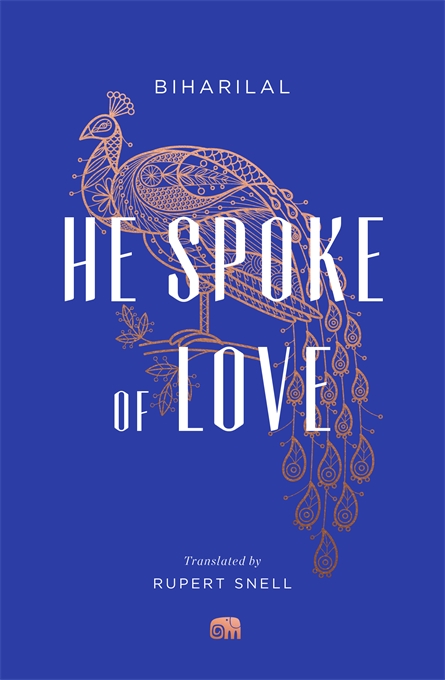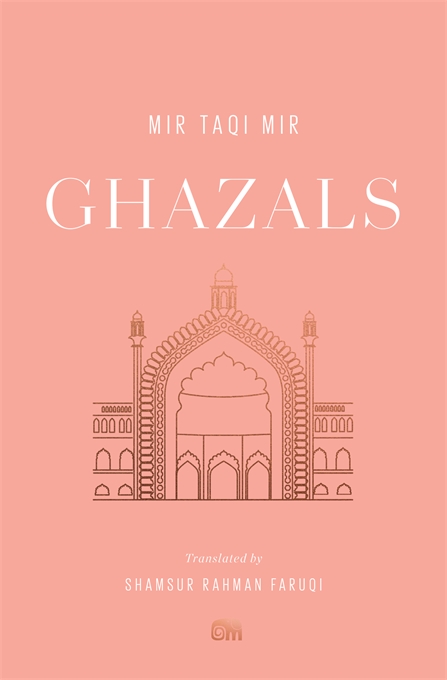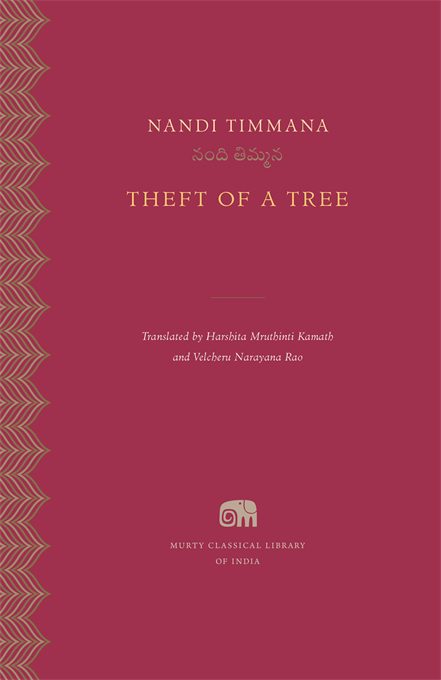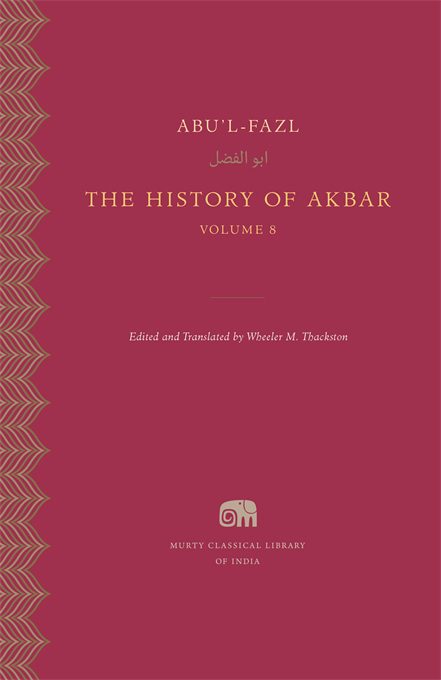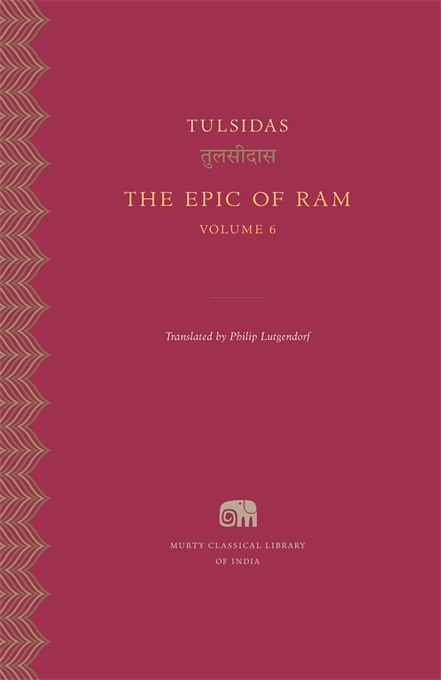
Image courtesy Murty Classical Library of India.
The Murty Classical Library of India is a series of books published by Harvard University Press since 2015. The series offers modern English translations of Indic classics from the past two milliennia for a new generation of readers. The series consists of newly-commissioned translations of classic works in diverse languages, including Bangla, Hindi, Kannada, Marathi, Pali, Panjabi, Persian, Sanskrit, Sindhi, Tamil, Telugu, and Urdu. The original text appears alongside the translation. The elegant Indic typefaces developed exclusively for the series are available free of charge to anyone for non-commercial use. The series is supported by a generous gift from Rohan Narayana Murty.
The Mittal Institute sat down with Dr. Sharmila Sen, Editorial Director of Harvard University Press, to learn more about the collection and the new volumes published this winter. Harvard University Press, founded in 1913, has published many bestsellers and critically-acclaimed books for general readers and scholarly/professional audiences. Dr. Sen strategizes and oversees Harvard University Press’ overall book acquisition program.
Mittal Institute: Sharmila, thank you so much for your time! As Editorial Director of Harvard University Press, you are involved publishing many books. Can you please tell our community a bit about your role in general, and also as it relates to the Murty Classical Library?
Sharmila Sen: Delighted to join you and talk about my favorite pink books adorned with our beloved elephant logo. As Editorial Director of Harvard University Press I am responsible for strategizing and overseeing all the books that our acquisitions editors bring in and ensuring that they are published in accordance with the best standards of our industry. Over a decade ago, I acquired the Murty series on behalf of the university with our founding general editor, the renowned Sanskritist Sheldon Pollock. He and I first discussed the dream – an “Indian Loeb Classical Library” – with Rohan Murty and his family over a cup of tea in 2009. A few weeks later (yes, it was that fast!) the Murtys decided to establish a generous endowment to support this series of books. Sheldon Pollock and I were passionate about “the dream” and about this body of literature. I had previous experience starting and overseeing translation series at the Press. I added publishing expertise to Sheldon’s vast scholarly expertise as a pre-eminent Sanskritist. Together, along with Rohan’s support, we gave shape to the dream. Rohan was a computer scientist, working on his Ph.D at the time. He read voraciously and widely but wasn’t a humanities scholar. Yet, something clicked for this unlikely group — a Sanskrit scholar, a publisher, and a computer scientist — and a new series was born. Thirteen years later, we still look back on the initial spark that started our journey with disbelief. I feel very lucky, of course, to have taken a part in this adventure so far.
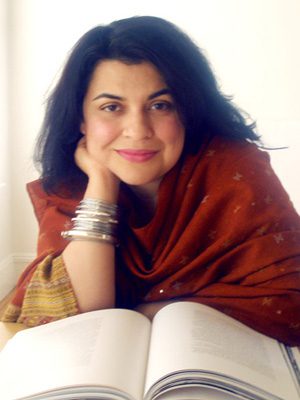
Dr. Sharmila Sen, Editorial Director of Harvard University Press.
Mittal Institute: Are there any other people involved in the stewardship of the Murty Classical Library?
Sharmila Sen: The editorial board of the series is headed by Sheldon Pollock. There are 5 other scholars from different universities across the world who serve on this board. Each scholarly editor is responsible for a linguistic area (Indo-Persian, South Indian languages, North Indian languages, Sanskrit, and so on) An oversight board is also in place to attend to non-editorial governance and business matters. My long-time colleague Heather Hughes oversees the day-to-day operations and is a wonderful asset for the series. A new colleague, Samantha Mateo recently joined us from Chicago as our production coordinator. In addition, we work with typographers, graphic designers, proof-readers, digital marketing professionals, and our sales partners in South Asia (HarperCollins India) to publish the books worldwide. These books are very labor-intensive and quite unlike any other bilingual series of similar ambition in the market today.
Rohan Murty takes a very close interest in the series as well. In fact, he and I were just chatting about the new website we rolled out. The Murtys are wonderful supporters of the series and through their network the books have found their way into libraries, homes of heads of state, as well as into the hands of young people and general readers who are not involved in academia. I hear that the library in 10 Downing Street [home to the British Prime Minister] has a set of the Murty classics.
It is very important to all of us involved with these books to keep the mission of reaching the widest possible audience in mind. We do not want to limit ourselves to academics, graduate students, or people who live in the United States. Every time I go to India, I drop by bookstores in numerous cities and see if our books are stocked or find out through casual conversations how readers, booksellers, and reviewers, perceive the books. We sell these books in India with very reasonably INR prices. You can find them here.

Image courtesy Murty Classical Library of India.
Mittal Institute: Can you talk to us about the process of sourcing these works? How do you decide what to publish, and how do you find world-class scholars, such as you have, for the translations?
Sharmila Sen: The Editorial Board, consisting of 6 renowned scholars, choose the translators and the texts to be translated. It is a rigorous and complex process, delicately balancing beauty (of the English translation) with fidelity (to the Indic original). Not an easy task, especially because many of the texts are being translated for the first time into English. Unlike Greek or Latin texts, we do not have centuries of translation tradition to ground us. We are exploring uncharted territory. It can be scary, frustrating, and enormously time-consuming work. But the rewards are equally significant. I think these books will be ones I’ll look back on with the most pride and joy long after I have retired from my job.
Mittal Institute: Why is it so important for Harvard University Press to have a collection of Indic work?
Sharmila Sen: As the publishers of the Loeb Classical Library, a publication series that began in 1911, Harvard University Press has long been associated with Classics and quality translations intended for a general readership. We also publish a series of Renaissance Latin texts in translation and a series of medieval European literature (originally written in multiple languages) in translation. A decade ago it seemed logical to me to extend our offerings. The Murty classics are a result of that global vision. The pre-modern world of letters was far more cosmopolitian and wide-ranging than we may realize. When the Murty classics joined the Harvard University Press family of bilingual texts we could boast of translation series that included classic literature from Britain to Bengal. We cover 3,000 years of literature and range from Aristotle to Abu’l Fazl, from Beowulf to Bullhe Shah. The original text is always included on the left-hand side of the book in the appropriate script. The books are beautifully designed and made. The endowment makes it possible to price them affordably. I cannot think of another publisher with this kind of list.
A decade ago it seemed logical to me to extend our offerings. The Murty classics are a result of that global vision. When the Murty classics joined the Harvard University Press family of bilingual texts we could boast of translation series that included classic literature from Britain to Bengal. We cover 3,000 years of literature and range from Aristotle to Abu’l Fazl, from Beowulf to Bullhe Shah…. I cannot think of another publisher with this kind of list.
Mittal Institute: How often do you publish new works? How can our community learn more or purchase any volumes?
Sharmila Sen: We are continuously adding new books to each of the series I mentioned above. We publish 3-5 new Murty Classical Library books each autumn, and a couple of beautifully designed translation-only paperbacks each spring. I am currently toying with the idea of putting out an anthology next year to give readers a taste of South Asia’s diverse literary offerings in one accessible short volume. Something that one might give as gift or dip into for an introduction to iconic works from Sanskrit, Pali, Panjabi, Kannada, Hindi, Bangla, Urdu, Telugu, and much more.
Visit our website (murtylibrary.com) and sign up to receive news, special offers, and exclusive excerpts. The site will show you how to buy the books very easily from anywhere in the world.
Follow Harvard University Press on on Facebook and Twitter for announcements about forthcoming titles. There are lots of easy and fun ways to keep track of these books and start collecting them. I look forward to hearing from our readers. Tell me which is your favorite Murty classic so far. Tell me what you would like to read next.

